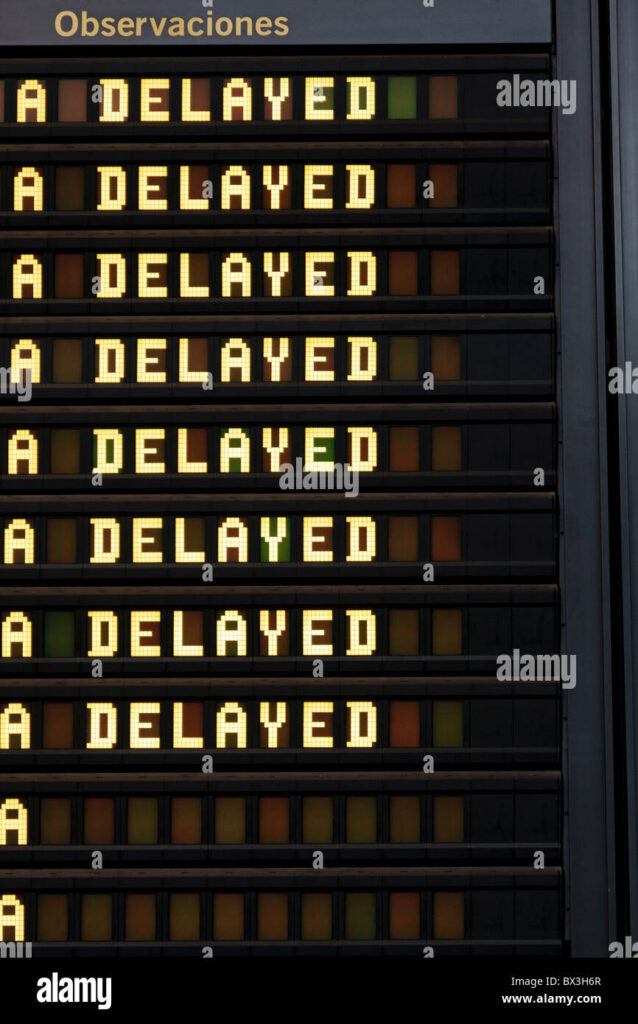As the government shutdown continues, I am starting to worry about its impact on air travel especially since I have a trip coming up in a week. Government shutdowns in the U.S. can have a significant and often escalating impact on air travel, even though air traffic control (ATC) and TSA are considered essential services and continue to operate. The impact tends to worsen the longer a shutdown lasts. I thought I would take a look at what these impacts could be.

Staffing Shortages (Long-Term Effect):
Air Traffic Controllers: Controllers are essential and work without pay during a shutdown. However, working without pay can lead to sick outs or early retirements due to financial strain and morale issues. Fewer controllers mean increased flight delays and cancellations to maintain safety standards. Training new controllers also halts, exacerbating long-term staffing challenges. We are seeing more and more sick outs now. The first sign was with the loss of controllers at Burbank Airport.
TSA Agents: Like ATC, TSA agents work without pay. This also impacts morale and can lead to higher rates of sick calls. Longer security lines are a primary visible effect, as fewer agents may be available to staff all lanes, or agents might be slower due to fatigue or demoralization.
FAA Safety Inspectors: These crucial personnel are often furloughed during a shutdown. This means new aircraft cannot be certified, new routes or procedures might not be approved, and routine inspections (of planes, repair facilities, etc.) can be delayed or halted. This could potentially ground some aircraft, delay new airline services, and raise long-term safety concerns.
Customs and Border Protection (CBP) Agents: While essential for international arrivals, staffing shortages or morale issues can lead to longer wait times at immigration and customs, particularly at major international hubs.
Increased Delays and Cancellations:
As staffing for ATC and TSA declines (due to sick-outs or morale), the system becomes less efficient. Airports might be forced to reduce the number of flights to ensure safety, leading to more delays and cancellations.
Fewer FAA inspectors can also delay the return of aircraft to service after maintenance or modification, indirectly impacting airline operational capacity.
Reduced Services and Amenities:
Non-essential government services at airports, such as information desks run by federal agencies, might close.
Maintenance and upgrades on federal airport infrastructure could be delayed.
Financial Strain on Airlines (Indirectly):
Increased delays and cancellations cost airlines money (fuel burn, compensation to passengers, rebooking costs).
Any delays in FAA approvals for new aircraft or routes can impact an airline’s growth plans.
Passenger Frustration and Economic Impact:
Longer lines, delays, and cancellations lead to frustrated passengers.
Business travel can be impacted, leading to economic losses.
Tourism can suffer if travel becomes too unpredictable or unpleasant.
Historical Context:
During the longest government shutdown in late 2018 and early 2019, the impact on air travel became very noticeable towards the end. There were significant TSA sick-outs, leading to widespread calls for flight cancellations due to lack of security personnel. Air traffic control staffing also became a major concern. The shutdown ended largely due to the escalating crisis in air travel safety and efficiency.
In short, while immediate, catastrophic impacts are usually avoided at the start of a shutdown (due to essential personnel continuing to work), the cumulative effect of unpaid work and furloughed non-essential safety oversight can quickly degrade the air travel system, leading to widespread disruptions and potential long-term safety concerns.
Conclusion:
In these unsettling times, it pays to be budget more time for air travel that you would normally do. First the security lines may be backed up and take a really long time and you should expect flight delays. If you are flying to a destination and have immediate plans thereafter, you may want to change those plans. For example, if you are flying to Florida to take a cruise, it would be advisable to fly in a day earlier to avoid any complications in your travel.
